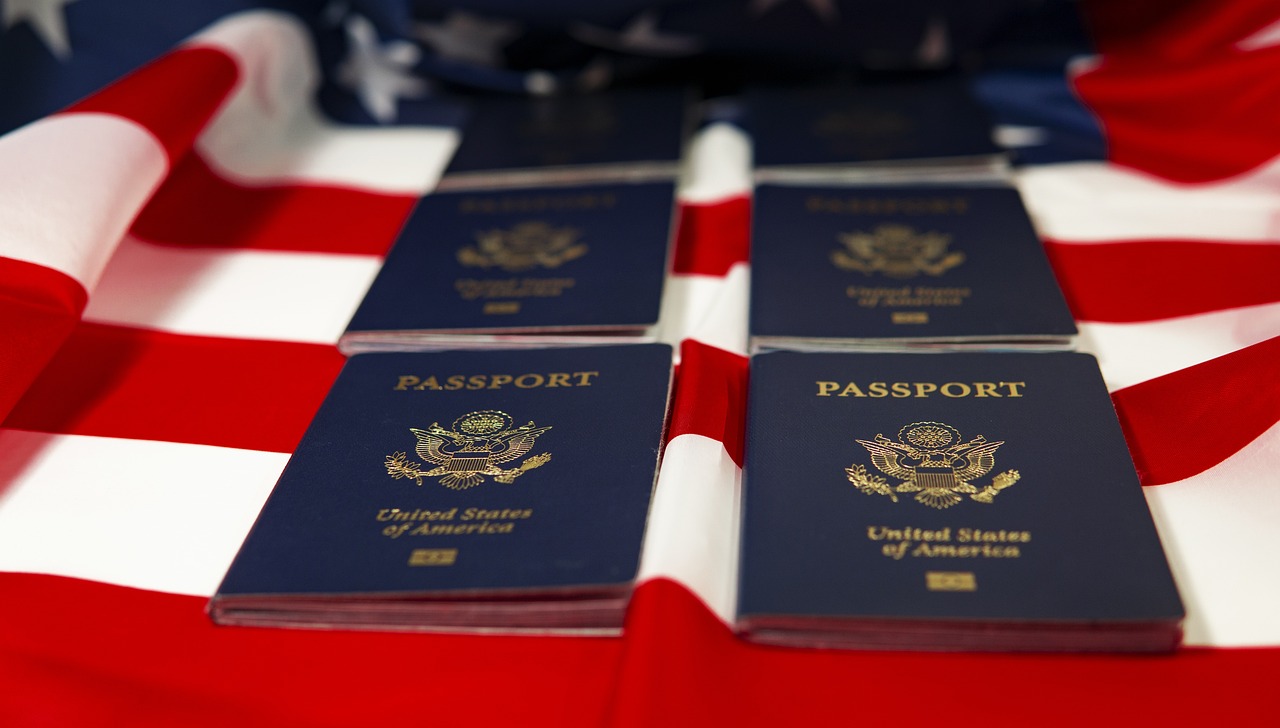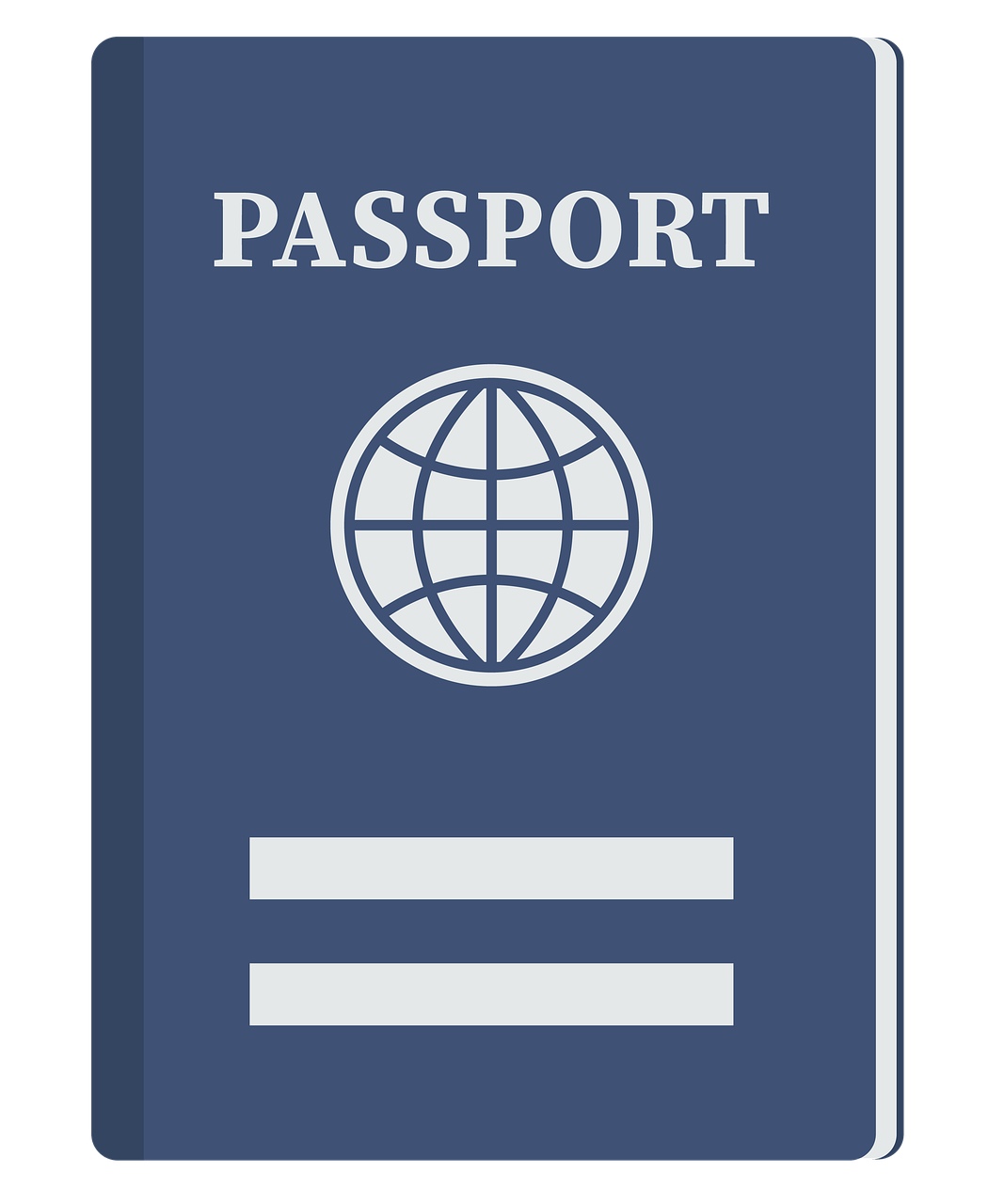Visa Guide
Can You Look Up Someone’s Visa Status?
Looking to find out someone’s visa status? This article explores the options available, including government websites and third-party services. Discover how you can easily access visa status online!
Have you ever wondered if it’s possible to find out someone’s visa status? Whether you’re hoping to check on a friend or family member’s immigration status, or even looking to verify your own, it’s a common question many people have. In this article, we’ll explore the options and resources available to you when it comes to looking up visa status. Whether you’re curious, concerned, or just want to ensure someone’s living situation is secure, we’ve got you covered. So, let’s dive in and discover how you can easily find out someone’s visa status!
Understanding Visa Status
What is a visa?
A visa is an official document or stamp issued by a country’s immigration authorities that allows a foreign individual to enter, stay, or work in that country for a specific period of time. It serves as an authorization to travel and is usually found within the individual’s passport.
What is visa status?
Visa status refers to the current standing or condition of an individual’s visa. It indicates whether the visa is valid, expired, or revoked, and provides information about the individual’s permission to stay in the country, work, or engage in other activities. Visa status determines the rights and restrictions associated with the visa holder’s presence in the country.
Why is visa status important?
Visa status is crucial for individuals as it determines their legal presence in a foreign country. It affects their ability to work, study, access healthcare, and engage in various activities within the country’s legal framework. Maintaining a valid visa status is essential to avoid any legal penalties, such as deportation or bans on future entry. Additionally, employers, educational institutions, and other entities often require verification of visa status before providing services or opportunities.

Checking Visa Status Online
Visa status databases
Visa status information is generally stored in visa databases maintained by government authorities. These databases contain information about the visa holder’s personal details, visa type, duration of stay, and any conditions or restrictions associated with the visa.
How to access visa status online
Visa status can be accessed online through various channels. The most reliable and authoritative sources are official government websites that provide direct access to their visa databases. Additionally, there are third-party visa status checking services that offer convenience but may have limitations in terms of reliability and accuracy.
⚠️ Beware of Jobs and VISA Scams – Read our guides carefully and APPLY directly using our links and buttons. Application is free! Don’t pay anyone claiming to be a travel or Job Agent!
Official government websites
Official government websites, such as those belonging to the Department of Homeland Security (DHS), U.S. Customs and Border Protection (CBP), and U.S. Citizenship and Immigration Services (USCIS), provide access to visa status information for specific countries. These websites require individuals to provide certain details like visa reference number, passport information, or personal details to obtain the status report.
Third-party visa status checking services
There are also third-party visa status checking services available online. These websites claim to provide a streamlined process for checking visa status but may have limitations concerning the accuracy and reliability of the information. It is important to exercise caution and ensure the authenticity of such services before providing personal information.

This image is property of pixabay.com.
Government Visa Status Databases
Department of Homeland Security (DHS)
The Department of Homeland Security (DHS) in the United States maintains a comprehensive visa status database. It contains up-to-date information on visa holders, including their legal status, duration of stay, and any conditions or restrictions associated with their visas. Access to this database can be obtained through the official DHS website.
U.S. Customs and Border Protection (CBP)
The U.S. Customs and Border Protection (CBP) is responsible for managing the entry and exit of individuals from the United States. They maintain a visa status database that verifies the legal status of individuals entering or leaving the country. The CBP website offers access to this database for individuals to check their visa status.
U.S. Citizenship and Immigration Services (USCIS)
The U.S. Citizenship and Immigration Services (USCIS) is responsible for processing visa applications and maintaining visa status records. They offer an online portal where individuals can check the status of their visa applications, including whether they have been approved, denied, or are under review. This portal provides valuable information on visa status for those in the United States.
Other country-specific visa status databases
Similarly, other countries maintain their own visa status databases accessible through their respective official government websites. These databases contain information regarding the visa status of individuals within their jurisdiction. It is advisable to visit the specific country’s official government website to access accurate and reliable visa status information.
Accessing Visa Status Online
Using visa reference number
To access visa status online, individuals may be required to provide their visa reference number. This unique identification number is usually mentioned on the visa itself or any associated correspondence. By entering this number on the designated website, users can check the current status of their visa.
Using passport information
Another common method to access visa status online is through passport information. Individuals are often required to provide their passport number, along with additional personal details, to verify their visa status. This method ensures accurate identification and can be used if the visa reference number is unavailable.
Using personal details
Some visa status checking systems may require users to enter specific personal details, such as full name, date of birth, and nationality, to access visa information. This method ensures accuracy and helps match the details provided with the stored visa records.
Login requirements and restrictions
Depending on the country and the specific online portal, individuals may need to create a user account or log in using their credentials to access visa status information. It is advisable to follow the registration process outlined on the website and adhere to any login requirements or restrictions to ensure secure access to visa status information.

This image is property of pixabay.com.
Official Government Websites
How to navigate official government websites
Navigating official government websites can sometimes be daunting due to their extensive content and complex structures. However, most government websites provide user-friendly interfaces with dedicated sections or search functions to locate visa status information. Users can follow the intuitive navigation menus or utilize the search bar for quick access to the desired information.
Specific information required
When accessing visa status information on official government websites, users might need to provide specific information to ensure accurate results. This information usually includes the visa reference number, passport information, or personal details. Being prepared with this information in advance can expedite the process of checking visa status.
User registration and login process
Official government websites often require users to create an account or log in to access visa status information. This process helps maintain the security and privacy of individuals’ visa-related data. Users should follow the website’s instructions for user registration and login, typically involving the creation of a username and password.
Additional services and resources
Official government websites not only offer visa status information but also provide additional services and resources. These may include information on visa application processes, guidelines for visa renewal or extension, and relevant legal documents. Users can explore the various sections of the website to access a wide range of valuable resources related to visa status.
Third-Party Visa Status Checking Services
What are third-party visa status checking services?
Third-party visa status checking services are online platforms or websites that offer individuals the convenience of checking their visa status without directly accessing government databases. These services aim to provide a simplified and user-friendly experience by aggregating data from different sources and presenting it in a coherent format.
Benefits and drawbacks of using third-party services
Third-party visa status checking services can be beneficial for those who prefer a simplified approach or face challenges accessing official government websites. These services often provide a streamlined process, eliminating the need to navigate complex government websites. However, they may have limitations in terms of accuracy, as the information they provide relies on data obtained from various sources, which might not always be up to date or reliable.
Popular third-party visa status checking websites
Several popular third-party visa status checking websites exist. These platforms aim to bridge the gap between individuals and official government visa databases, providing an easy-to-use interface. Examples include VisaGuide.World, iVisa.com, and VisaHQ.com. While these websites offer convenience, users must exercise caution and verify the credibility of the service provider before providing any personal information.
Safety and security considerations
When using third-party visa status checking services, it is crucial to prioritize safety and security. Users should ensure that the website they are using has appropriate security measures in place, such as encryption and secure data storage. Additionally, users should be cautious about sharing personal information online and thoroughly research the reputation and credibility of the service providers to mitigate the risk of fraud or data breaches.

This image is property of pixabay.com.
Factors Affecting Visa Status
Validity of the visa
The validity of a visa refers to the period for which it is authorized and allows an individual to stay or work in a foreign country. Visa status is directly affected by the validity period specified on the visa. It is crucial for individuals to be aware of their visa’s validity and take the necessary steps to renew or extend it before it expires to maintain a valid visa status.
Overstaying a visa
Overstaying a visa occurs when an individual remains in a foreign country beyond the authorized duration specified on their visa. This action is considered a violation of immigration laws and can have severe consequences. Overstaying a visa can lead to penalties, including fines, deportation, and bans on future entry to the country. It is essential to monitor visa expiration dates and take appropriate action to avoid overstaying.
Changes in visa conditions
Visa conditions, such as the right to work, study, or engage in particular activities, can change over time. These changes may occur due to amendments in immigration policies or the expiration of temporary permissions. It is crucial for individuals to stay informed about any changes in visa conditions to ensure compliance and maintain a valid visa status.
Visa renewal or extension
Certain visas may have a limited duration, requiring individuals to renew or extend their visas to maintain legal status. Visa renewal or extension processes vary depending on the country and visa type. It is important to understand the specific requirements and timelines associated with visa renewal or extension to ensure a smooth transition and avoid any disruptions in visa status.
Visa restrictions and bans
Visa restrictions and bans can be imposed on individuals due to various reasons, such as security concerns, non-compliance with immigration laws, or violations of visa conditions. These restrictions can limit future entry into a country or specific activities within the country. It is crucial to abide by visa conditions and laws to avoid any restrictions or bans on visa status.
Alternate Methods to Verify Visa Status
Contacting embassy or consulate
One alternative method to verify visa status is by contacting the embassy or consulate of the relevant country. Embassy staff can provide accurate and up-to-date information on visa status, renewal processes, and any recent changes in visa policies. This method ensures direct communication with immigration authorities and can be particularly useful for individuals who face challenges accessing online resources.
Using immigration lawyers or consultants
Immigration lawyers or consultants specialize in visa and immigration matters. They can assist individuals in verifying visa status, providing guidance on renewal or extension processes, and interpreting any changes in immigration laws. Engaging the services of an immigration professional can alleviate the complexities associated with visa status verification and ensure accurate advice based on the individual’s specific circumstances.
Visa inquiries through employers or educational institutions
Employers or educational institutions that sponsor an individual’s visa application often have access to visa status information or dedicated resources within their organizations. Individuals can reach out to their respective employers or educational institutions for assistance in verifying their visa status and obtaining any necessary documentation related to their visa.
Legal limitations on disclosing visa status
It is important to note that the disclosure of visa status is subject to legal limitations. Visa status information is sensitive and personal, and sharing it with unauthorized individuals or entities may breach privacy laws or violate legal agreements. Individuals should exercise caution when discussing their visa status and verify the legitimacy of any channel through which they provide or receive visa-related information.
Risks and Privacy Concerns
Sharing personal information online
When accessing visa status information online, individuals are often required to provide personal details such as full name, date of birth, passport number, and visa reference number. While this information is necessary for verification purposes, it is crucial to ensure that the website or platform being used employs appropriate security measures to protect the data from unauthorized access or misuse.
Impersonation risks
Sharing personal information online, particularly on third-party visa status checking services, carries the risk of identity theft or impersonation. Scammers may create fraudulent websites or platforms to deceive individuals into providing their personal information, which can then be used for illegal activities. To mitigate this risk, individuals should only use reputable and secure websites for visa status verification.
Data security and privacy
Visa status information is sensitive and should be protected to prevent unauthorized access, data breaches, or misuse. When using online platforms or government websites, individuals should ensure that the websites employ secure connections (HTTPS), have privacy policies in place, and adhere to established data protection regulations to safeguard personal information.
Scams and fraudulent websites
The internet is filled with scams and fraudulent websites targeting individuals seeking visa status information. These websites often mimic official government websites or claim to offer expedited visa processing services for a fee. It is crucial to exercise caution, research the website’s credibility, and verify the legitimacy of any service provider before providing personal information or making any payments.
Conclusion
Importance of verifying visa status
Verifying visa status is essential for individuals to ensure their legal presence in a foreign country. It allows individuals to understand their rights and responsibilities, comply with immigration laws, and avoid penalties or bans associated with non-compliance. Regularly checking visa status helps individuals stay informed, make necessary arrangements, and maintain a valid visa status.
Legal and ethical considerations
When accessing visa status information or sharing personal data online, it is important to adhere to legal and ethical guidelines. Individuals should ensure the platforms they use are reputable and secure, and they should be mindful of privacy laws and restrictions on disclosing visa status information to unauthorized individuals or entities.
Reliable sources for visa status information
For accurate and reliable visa status information, it is recommended to access official government websites. These websites provide direct access to visa status databases and offer comprehensive information on visa types, renewal processes, and other relevant resources. While third-party visa status checking services can provide convenience, caution must be exercised to ensure their credibility and reliability.
Disclosure: Our content is reader-supported. If you click certain links, we may earn a commission. Learn more about our funding and editorial process.

